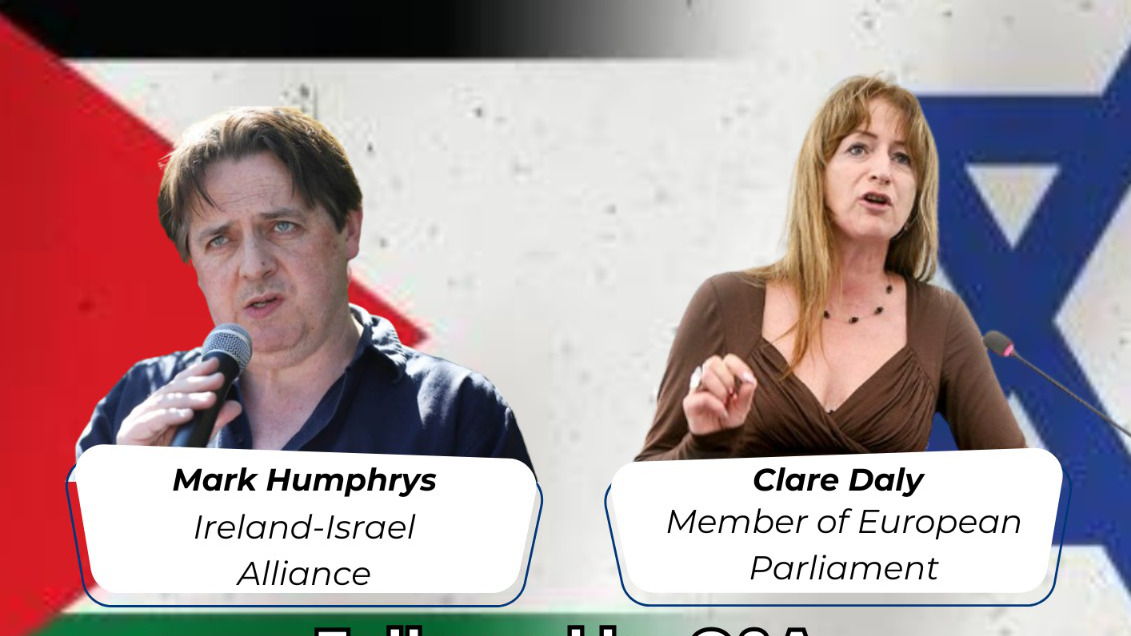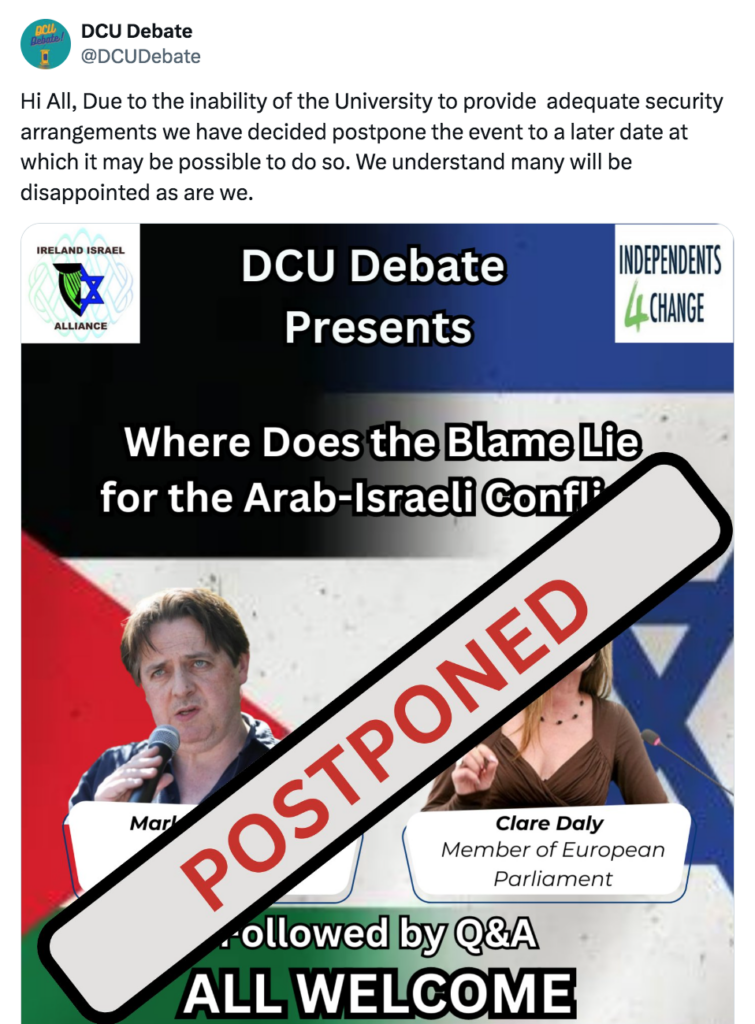A group of leading academics and students have launched the Trinity Declaration on Academic Freedom and Freedom of Expression.
The declaration comes amid what the group has called “a pernicious and pervasive
culture of censorship” which it says pervades Irish universities, many of which have pledged allegiance to the Athena Swan protocol which promotes controversial ideas such as critical race theory and transgender ideology.
Speaking at the launch at Trinity College Dublin yesterday, Dean Keating, an M.S.c Student at Trinity College and the student director for Free Speech Ireland, said “For over a year, Free Speech Ireland has campaigned against the Hate Speech Bill. Through our activism we have discovered a pernicious and pervasive culture of censorship.”
“Academic life, in particular, has a particularly pernicious censorial culture, which is having a chilling effect on academia in Ireland and stifling academic freedom in Ireland.” he said.
Keating said that he has heard “harrowing” stories of students and academics alike about how the “culture of censorship” has affected them in their academic careers.
“We hope that our Trinity Declaration on Academic Freedom and Freedom of Expression will lay the groundwork for the fight back, to protect academic freedom in Ireland.” he said.
Speaking in absentia, UCD’s Dr Tim Crowley said that the Trinity Declaration “is a powerful call to Irish universities to respect and promote academic freedom.”
He added that “it is a sorry state of affairs in which we find ourselves that a declaration such as this is needed.”
He continued, “In the Universities Act we have a bold and strong protection for academic freedom. The duty of our universities towards academic freedom is made very clear: the university has a duty and the responsibility to protect and promote academic freedom.” saying that this duty “is routinely ignored”.
Crowley said that due to the acceptance of so-called Anti-Racism principles, and also to the Athena Swan scheme by the Higher Education Authority (HEA), “academic freedom is being unacceptably compromised” in Irish universities.
“In the latter case, of Athena Swan, as is well known, display of commitment is tied to eligibility for funding from all of Ireland’s research funding bodies. This is an outrage that must be ended.” he said.
“I challenge anyone working or studying at an Irish university to identify a policy that has had the intention or effect of promoting academic freedom; policies are promulgated that don’t even protect academic freedom—indeed, that are at odds with academic freedom.” he said.
Crowley called for optimism saying that the new president of UCD, Orla Freely, has made “positive noises” about the importance of free speech and academic freedom.
He noted that although Freely has “had requests from students and faculty to commit the university to a
particular position” on the Israel-Palestine war, “Professor Feely explained that to do so would be to inhibit the ‘freedom of members of our community to express their individual positions and suppressing our ability to sustain and respect a diversity of views’.”
Crowley said that University presidents of Ireland “should follow the path” set by President Orla Feely and expressed hope that the Trinity Declaration would “help to push her further—to be a wind at her back, and lead UCD and the other universities towards the goal of academic freedom.”
The full text of the Trinity Declaration on Academic Freedom and Freedom of Expression reads:
There are two divergent perspectives on the role of universities in contemporary Ireland. Certain voices posit that universities should function in a nakedly political fashion, irrespective of objections by both academics and the student body.
They hold that a standardised political outlook should be adopted and enforced in a whip like fashion.
We affirm a different conception of the University, that universities are capable of performing this political function absent from the implementation of ideological conformity and collective University positions. Our view is that in its agnosticism toward ideology, universities create a space wherein open debate and the dissemination of knowledge are placed on a pedestal. In turn, genuine academic innovation and progress are fomented.
Academic freedom and freedom of expression, values which should be treated as sacrosanct by students and academics alike, are threatened by university politicisation. In practice this stifles debate, engenders conformity, creates a climate of hesitancy with respect to the expression of one’s views, and is detrimental to the morale of the student body. We warn against interference caused by, for example, the pegging of research funding to ideological commitment, and the threat of allowing unrepresentative bodies, student or otherwise, to dictate the ideological direction of the university.
This will fundamentally chill academic freedom and the culture of free inquiry, dissent and debate on campus. As the Kalven report noted; “[The University] should not, therefore, permit itself to be diverted from its mission into playing the role of a second-rate political force or influence.”
Irish Universities have a long, rich history of producing many of the finest politicians, thinkers, and poets – Oscar Wilde, George Berkeley, Jonathan Swift, and Thomas Davis. Subject to a censorial, ideologically uniform status quo, is it even conceivable that our Universities could produce such figures again ? A zeitgeist of open inquiry was cardinal to the flourishing of their intellects and creativity.
We do not subscribe to indifference toward political and social causes, but we do proclaim our firm opposition to the adoption of a dogmatic attitude toward them from the University as an institution.
Our Belief is that universities are a unique instrument for the betterment and enrichment of society. In order for a university to protect its capacity to carry out this role, it must be a space for open inquiry, rigorous debate and scrutiny. The University must not marry itself to the political convictions of the day at the expense of this mission.
The Declaration was signed by:
Dr. Sarah Alyn Stacey, Trinity College Dublin
Dr. Tim Crowley, University College Dublin
Dr. Colette Colfer, South East Technological University
Dr. Gerard Casey, University College Dublin (Former.)
Dr. Finbarr Bradley, University College Dublin (Former.)
Dr. Mark Humphrys, Dublin City University
Dr. John Murray, Dublin City University
Dr. Catherine Kavanagh, Mary Immaculate College
This article is a repost from Gript.ie


